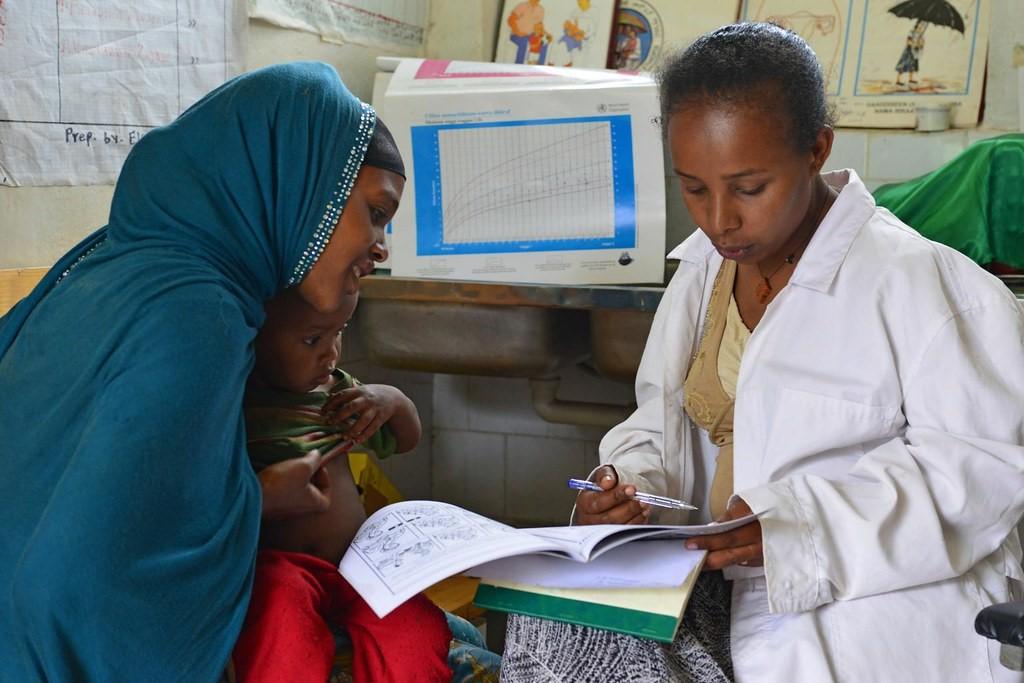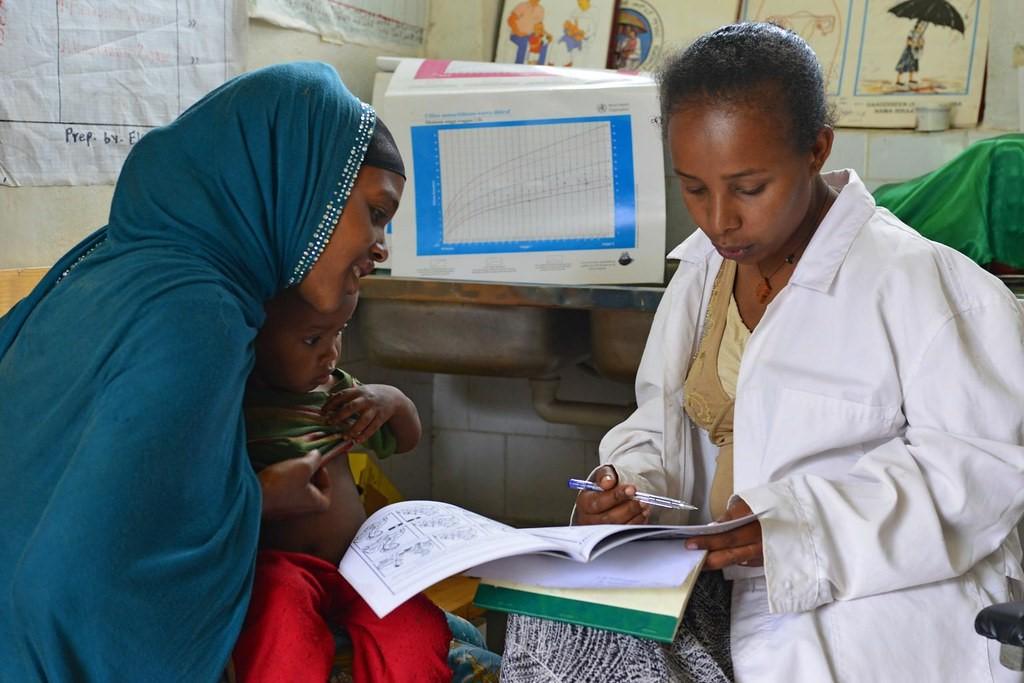
In many parts of the world, COVID-19 has caused sudden disruption in essential health services, including for non-communicable diseases (NCDs). A recent WHO report indicated that, due to the pandemic, as many as 75 % of its member states had experienced acute service interruptions for NCDs. The pandemic has hit hard both ostensibly “strong” and fragile health systems. In the latter,
community health workers have been embraced to mitigate health workforce shortages associated with the pandemic and to maintain essential health services. That has also been the case in my country, Ethiopia. Since the first few COVID-19 cases were detected in Ethiopia seven months ago, the country’s health extension workers (HEWs) have been instrumental in responding to the pandemic and keeping up essential health services. Till recently, however, they’ve had a negligible role in the prevention and control of NCDs. With an already substantial NCD burden in Ethiopia, and an anticipated further increase in the coming years, it seems crucial for the country to revisit the “HEW army” gaps, in order to make this relatively abundant health workforce ready for the additional NCD tasks.
Below I offer some thoughts on how to do so.
Needs are evolving, so should models of care
Across the globe, COVID-19 continues to have far-reaching consequences on the way we live our lives. In many parts of the world, the health system is under severe strain, including the capacity to provide NCD services. The health systems “stress test” has to deal with, among others, supply chain stress, diversion of resources and fear of infection among health workers and the public. Moreover, the stay at home policies (during the lockdown), the policies on social distancing and the resulting economic hardship being witnessed across countries have heightened risks of sedentary life, mental health, hypertension, and drug and alcohol abuse. This is even more true for low- and middle-income countries than for affluent nations, putting further pressure on already overstressed systems.
Against this overall backdrop, the health system needs to be re-defined to maintain essential services and restore people’s trust, but also to meet both COVID-19 related requirements and newly emerging NCD service needs. In many resource constrained countries, CHWs are relatively abundant and accessible to the community, but their role and skill set need to be reinforced to meet old demands and address newly emerging challenges.
The missing link
Community-based NCD prevention and control through the involvement of HEWs is relatively new in Ethiopia. The urban health extension program covering NCD services was introduced only a decade ago, in 2010, and the program is even more recent, dating back to 2015/2016, in rural Ethiopia, where over 80 % of the population reside. As a result, coverage of NCD services is low, even by sub-Saharan Africa standards.
This is corroborated by preliminary findings from my own PhD work. HEWs are less involved in delivering NCDs services, and they are ill equipped to provide needed services, and this despite the fact that a significant number of HEWs, particularly those with a diploma level training, had formal training on NCDs in school. These early PhD findings are further supported by a national evaluation study conducted last year, which revealed that HEWs are the least acknowledged source of information on NCDs in the communities where they are supposed to provide such services.
What needs to be in place?
Since Ethiopia reported its first COVID-19 case on March 13, 2020, infections have increased steadily, with over 88 thousand cases as of October 18th, 2020. For many Ethiopians, the economic and social hardship has been enormous too, creating immense pressure on individuals and families, with direct ramifications on health conditions and service need. More specifically, the dire situation also further affects NCD risk factors and exacerbates the already high burden of NCDs in the country. In 2019, before the pandemic struck, 32 % of total deaths and 33 % of disability adjusted life-years in Ethiopia were due to NCDs. Engaging the country’s HEWs is thus more than necessary to expand essential NCD services and to ensure that these are delivered on time and with an acceptable quality of care.
Over the last two decades, Ethiopia’s HEWs have been extensively involved and successfully so, in the promotion, prevention and delivery of essential health services, especially in the provision of maternal and child health, tuberculosis, HIV and malaria related services. The success of HEWs in these areas was primarily linked to political leadership, reasonable resource commitments, effective and supportive supervision, and the existence of a well-defined program of action. As well as their own drive and commitment, of course. Availability of ongoing training opportunities for HEWs also meant that they were able to boost their skill base and readiness to provide needed services.
Success in the prevention and control of NCDs through the HEW program requires building on the success story of the past, but also re-alignment and an updated vision that combines both long- and short-term strategies. Currently, the Ethiopian government has a mobile phone based short-term training program directed towards training HEWs for COVID related response efforts. The training is also meant to boost their skill base to provide needed essential health services. However, on aspects related to NCDs, the training provides limited learning opportunities. Areas of focus need to include: (a) availing adequate and simplified content about the prevention and control of NCDs; (b) sufficiently integrating NCD topics into the existing training modalities; (c) strengthening supportive supervision from the district and primary health care unit; (d) explicitly integrating an NCD component in the supervision process; and (e) collate, report and use NCD data for program implementation and decision making. Furthermore, advocacy and support from high level policy makers will be key, as well as protecting, motivating and providing psycho-social support to the HEWs themselves.
In Ethiopia, HEWs are one of the critical resources of the health system. They are relatively abundant and easily accessible for the poor majority in the country. However, their effectiveness to deliver needed services is intertwined with their skill set and their (career) opportunities within the health system. As I have argued above, the HEWs need to be empowered, supported, and offered opportunities to boost their knowledge base and skill set on NCDs so that they are ready for action. Only then, the country will be able to meet old demands and rise to emerging challenges within the current resource constraints.
